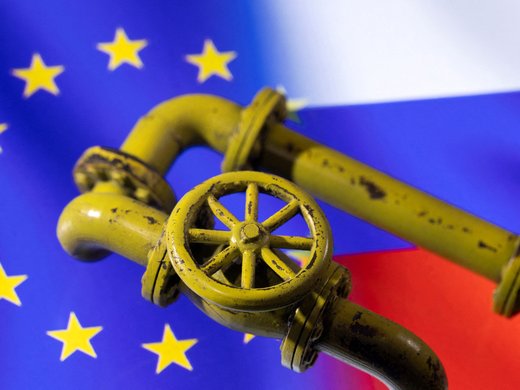The inauguration of Donald Trump as the next president of the United States is undoubtedly forcing every country to rethink its foreign policy. The case is no different here in Canada.
Not so long ago Justin Trudeau’s Liberals rode to electoral victory in Canada on a wave of optimism and promised Canadians a kinder, gentler foreign policy than his predecessor. Prime Minister Trudeau’s tone has earned him praise and accolades from Canadian liberals and progressives. Yet, as much as Trudeau would like to promote a cosmopolitan and co-operative foreign policy, Trump’s emerging policy agenda may force Trudeau to take a harder, self-interested line.
One caveat is crucial: attempting to forecast what is in Trump’s foreign policy playbook is a fool’s game at this point. He has no track record as a politician or public servant, giving analysts little data to work with.
He prefers a communications strategy built on the principle of unpredictability. While he seems to have some core beliefs about the way that global politics work, he does not appear to have strong convictions about what practical steps the U.S. should take to secure its interests in the world. For now, we can only glimpse President Trump’s foreign policy through a glass, darkly. He is probably neither the fool nor the genius pundits make him out to be.
We are forced to rely on statements he has made in interviews, press conferences and on his infamous twitter feed.
During the presidential election Trump surrogates and campaign members whispered that Trump’s anti-trade rhetoric was not targeting Canada, but his transition team now suggests Canada will not be excluded from efforts to adjust value-added taxes at the border, and will be included in efforts to renegotiate NAFTA. The typically collegial – if not always friendly – relationship between Ottawa and Washington might be on hold.
Let’s be clear: this is about much more than trade. Instead, Trump’s plans for U.S. trade policy offer hints about the rest of his foreign policy, a policy that doesn’t use America’s network of allies as a foundation for co-operative efforts to achieve its goals.
Instead, it sees a world of “takers” who exploit American weakness and generosity and bleed the U.S. dry. This doesn’t just apply to jobs and investment dollars, but to security as well. Taken at face value, President Trump’s comments on NATO — when interpreted alongside his views on trade — suggest Trump doesn’t see a peaceful, stable world as a core interest of the U.S.
The rest of the world is “somewhere else,” and so long as the bloodshed and instability does not cross America’s borders, it’s not America’s problem. It’s a view of foreign policy that defies 70 years of bipartisan consensus — that the U.S. looks for co-operative solutions to its problems because it is in its cold, hard interest to do so. This outlook may put Canada in an unenviable position.
Now, all the rhetoric coming from the president’s camp could simply be posturing. As he is fond of pointing out, he is foremost a businessman who is proud of his negotiating prowess. He is also a reality television star who knows how to speak provocatively. Even if this rhetoric is simply an opening round of bargaining, the Trudeau government must respond and take it seriously. Last week’s cabinet shuffle – putting Chrystia Freeland in charge of foreign affairs and tapping retired lieutenant general Andrew Leslie to aid the new minister – makes it clear that Trump has caught Prime Minister Trudeau’s attention.
It’s looking like Canada-U.S. relations could become unruly. Unruly doesn’t have to be bad though. To navigate the next four years, here are a few things for the Canadian government, businesses, and citizens to keep in mind.
The first is that when negotiating with the U.S., Canada should firmly anchor its opening positions. NAFTA and the rest of the existing Canada-U.S. economic relationship is imperfect. However, despite its flaws it has been generally good for both countries. If the new U.S. government wants to radically alter the status quo, then they need to make the case that both countries should toss out an imperfect but well understood set of rules (that Canada has upheld for over two decades) for something new.
Trudeau’s government is in a naturally strong negotiating position since Trump’s administration needs to not only convince Canada but its fellow Americans to trade predictability for uncertainty. Thus, in the opening rounds, Canada should stick to the position that NAFTA, as it is, should stand, and should only give up ground grudgingly.
A second rule is that there is no need for hostile rhetoric.While Trump is unpopular in Canada, Trudeau should ignore that fact. Remember Aesop’s fable, where the wind and the sun competed to see who could get a weary traveler to remove his cloak. The wind blew mightily, but only convinced the traveler to pull his coat tighter. The sun, on the other hand, beamed warmth on him. Overheating, the traveler pulled his cloak off. When dealing with a new administration that has promised a great deal to the U.S. public and is eager to show off some successes, a positive and ingratiating tone will probably get Canada further than a stubborn one.
Finally, despite the changes Trump may signal for U.S. foreign policy, let’s remember that because of history and geography, Canada and the U.S. share many interests. Where those align, Canada should enthusiastically work with Washington.
Take, for example, China. If the Trump administration is willing to hold China to account, and demand it abide by the trade and investment rules Beijing itself signed up for, Canada should support Washington. After all, Canada is getting ready for its own trade negotiations with the Chinese government, and an accountable and responsible Beijing that abides by its word is in Canada’s interests. While it is always good sense to collaborate on mutual interests, this time it is more important than ever to capitalize on common ground.
The sunny ways of 2015 are probably obsolete, but that doesn’t mean more turbulent times are inevitable. Instead, a dose of toughness, a bit of grace, and a willingness to capitalize on common ground could help make the next four years as smooth as possible.
Simon Palamar is a research associate at the Centre for International Governance Innovation (CIGI)
This piece originally appeared in the Toronto Star


